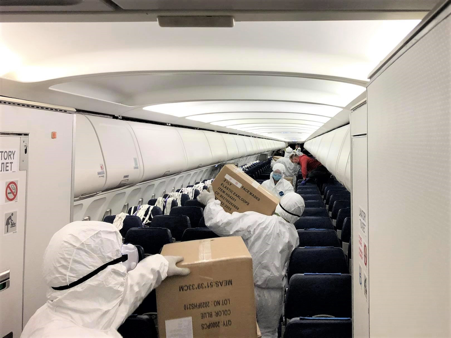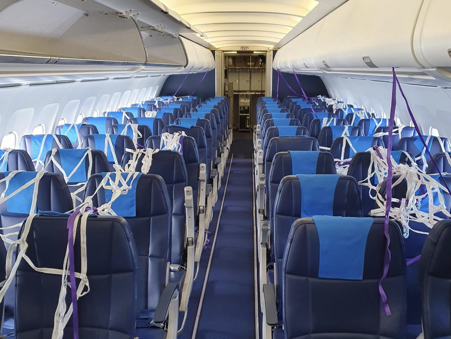Over 100 tons of cargo capacity enters the market to ease demand for medical supplies
By far the largest challenge felt in the air cargo industry currently is a lack of capacity. We are seeing unprecedented demand for the transportation of medical supplies, personal protective equipment (PPE) and other essential equipment across the globe. Unfortunately, there are only a finite number of cargo planes available for these crucial operations.

Recently, the UK government discussed the issue of PPE supply and the current monumental demand for further protective equipment for the NHS and front-line health workers. While the UK has already received over a billion items of PPE, much more is needed. The latest move by Chapman Freeborn and Avion Express will play a small part in increasing the UK’s (and its European neighbours’) ability to bring in additional protective equipment.
The demand for cargo capacity has been greatly exacerbated by the grounding of many passenger fleets due to a sharp decline in passenger travel. Lots of the world’s cargo travels in the belly space of these passenger aircraft, meaning the reduction in flight numbers has limited the capacity for cargo transportations on typically high-demand routes.
Pierre Vanders, Chapman Freeborn cargo director commented “We’re proud to be working so closely with Avion to bring much needed capacity to the market. At the moment, any additional capacity is making a huge difference as it increases the volume of life-saving equipment that’s making its way to our hospitals.
“It’s great to see the entire cargo industry galvanised during this crisis and creating solutions that affect the lives of people across the world. Chapman Freeborn has already transported thousands of tons of critical aid on both cargo and passenger aircraft.”
Mr Vanders adds “We have already completed a number of missions for urgent medical supplies with Avion Express”.
Dainius Staniulis, Avion Express Commercial Manager says “Our recent decision to operate cargo-only flights on our fleet of Airbus A320s and A321s was absolutely the correct thing to do. We’ve performed numerous projects already, transporting N95 respirators and other equipment from hubs in China, across Europe.
“The aircraft are actually very spacious and can accommodate a significant amount of cargo. We are working with authorities to remove the seats in the passenger deck to maximize the cargo volume that we can carry and help us utilize the cabin and overhead compartments for lighter, smaller boxes, while the belly hold is used for larger items. The A320 and A321 can carry up to 17 tons and 24 tons, respectively.”
These aircraft are available not only for medical cargo and are positioned in strategic locations across Europe.
The cargo capacity on both of the variants is split between belly hold, main deck and overhead compartments. There are at least two A320 aircraft and 3-4 A321s available. The capacity of the aircraft is as follows (subject to dimensions of the boxes/pallets):
A320:
- Belly hold: 30 CBM
- Main deck: 50 CBM
- Overhead compartments: 5.0 CBM
- Total cargo limited to 17 tons or 85 CBM
A321:
- Belly hold: 40 CBM
- Main deck: 55 CBM
- Overheard compartments: 5 CBM
- Total cargo limited to 24 tons or 100 CBM

While the two companies have worked closely to bring these aircraft to the market, both are also working with organisations outside of the group to support various cargo missions.
This recent project comes shortly after similar arrangements with in-house cargo operator, Magma Aviation – utilising its fleet of B747-400F to support the demand created following president Trump’s travel ban into the USA. These aircraft are now performing critical cargo operations across the United States, Europe, Middle East, and Africa.






_-_127500_-_27c823241580996b2f70e43819ff4c27da31c732_lqip.jpg)



